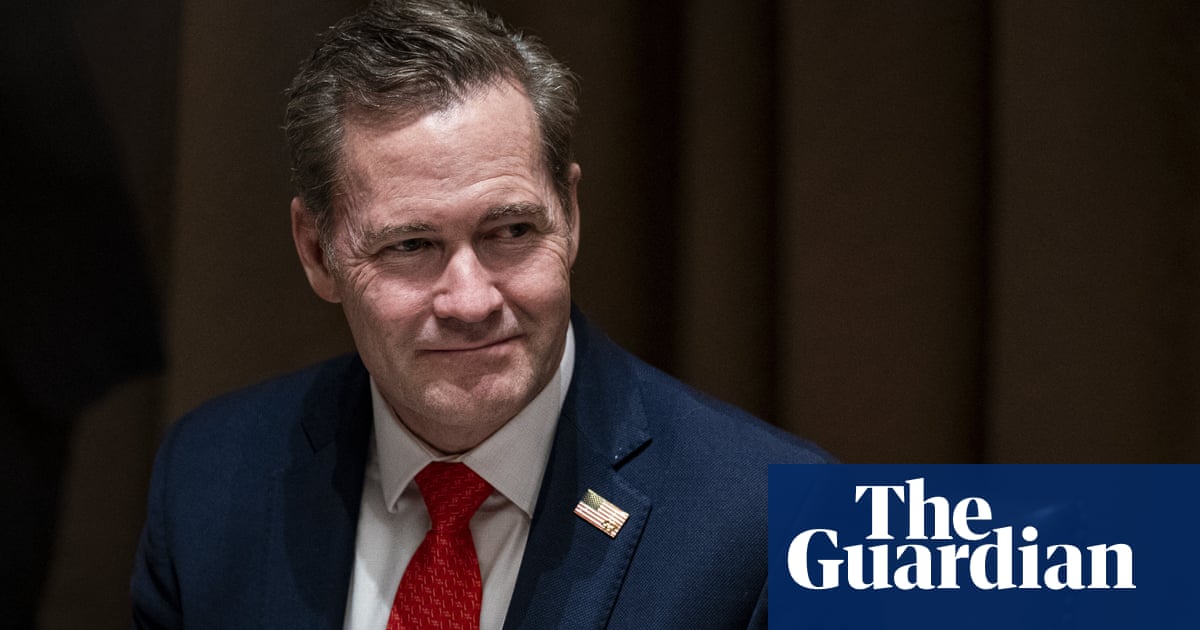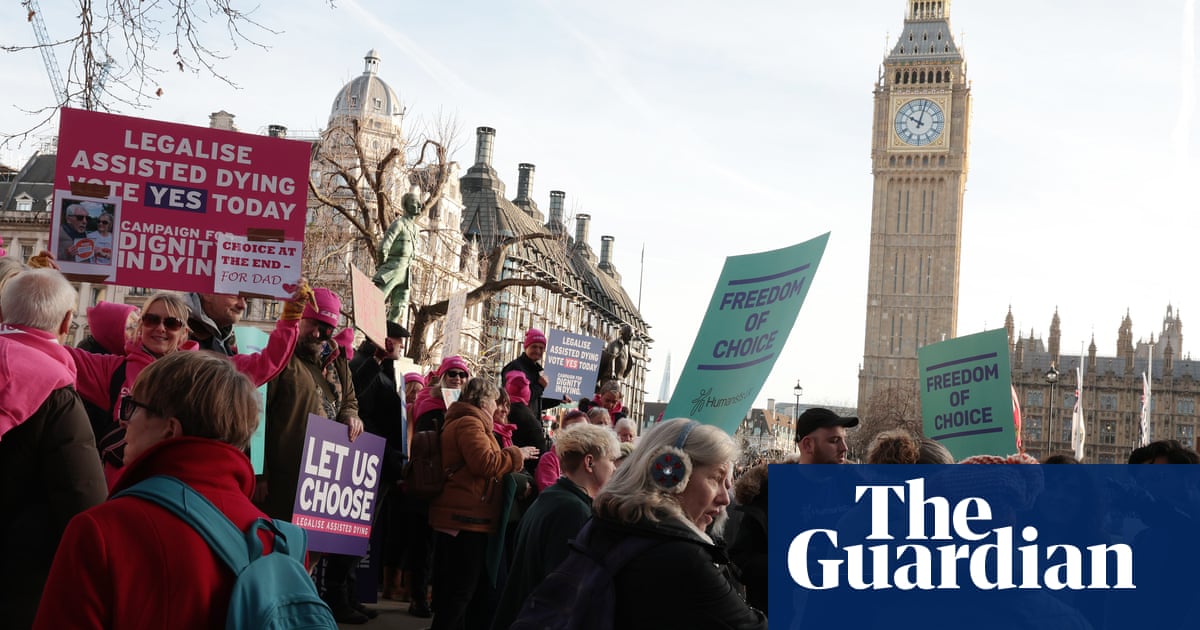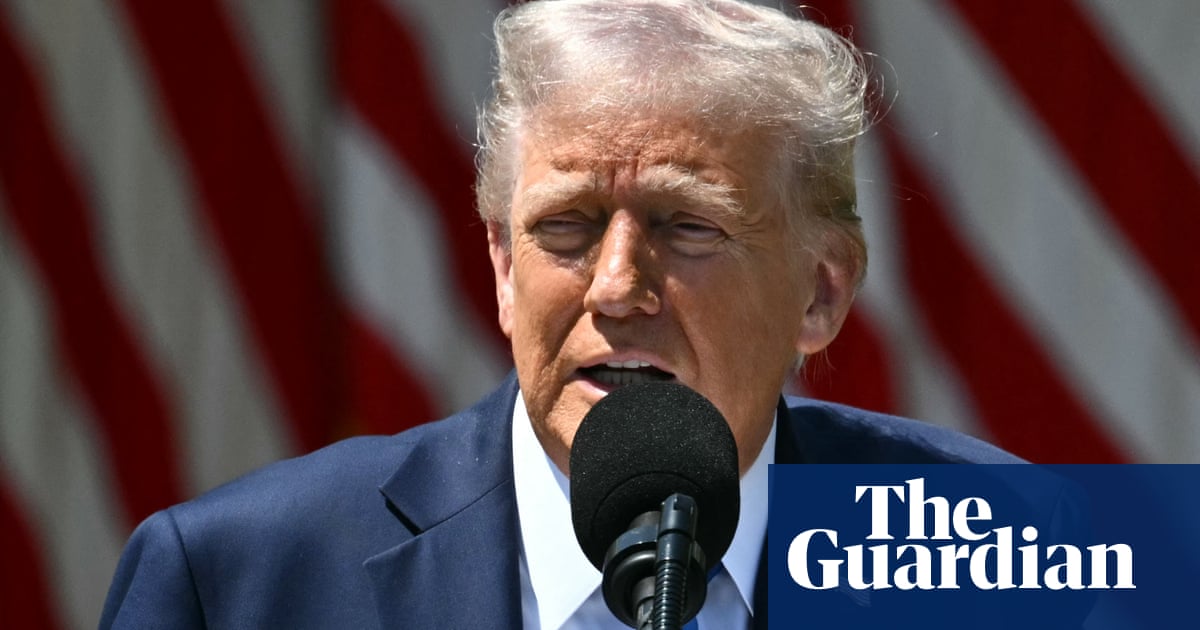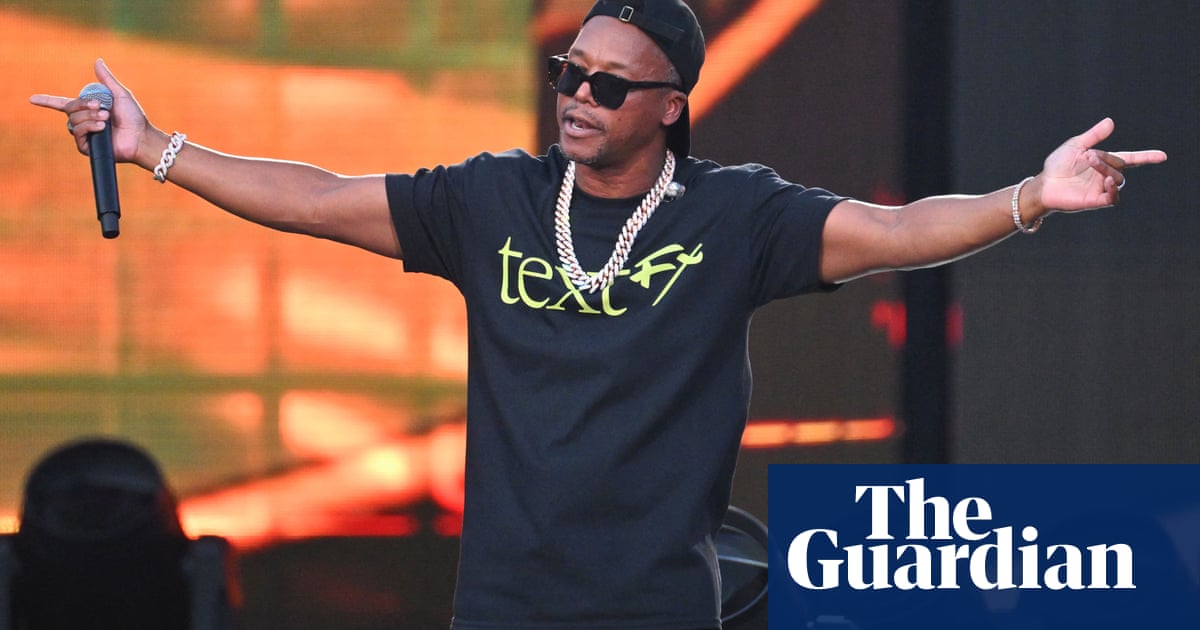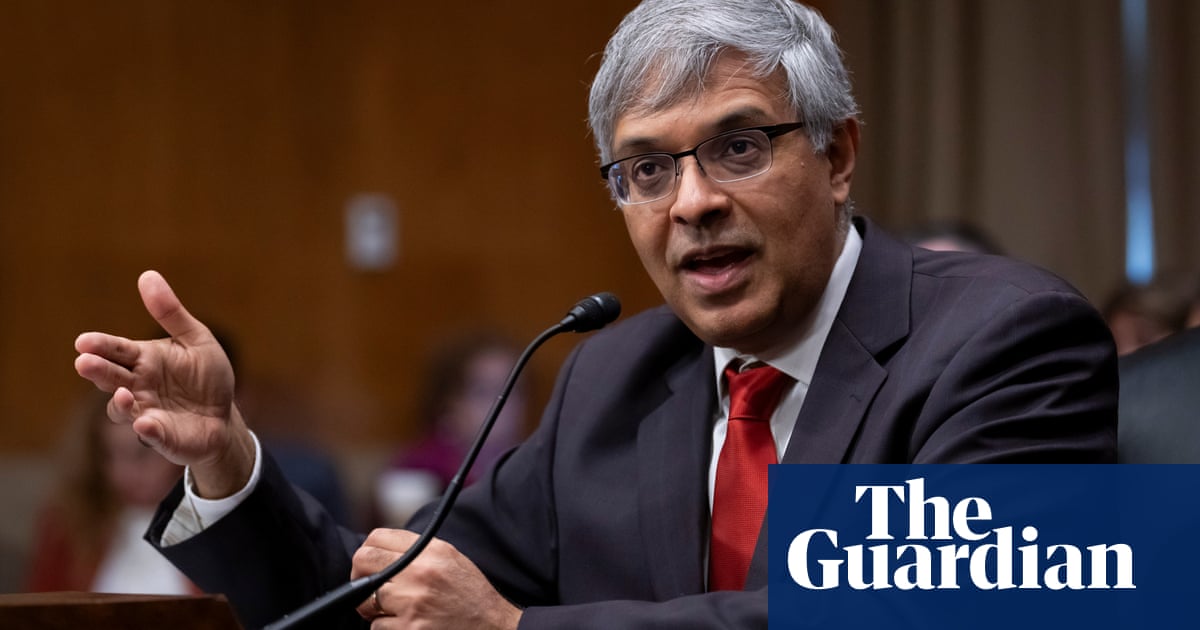Earlier this year, the Northern Irish hip-hop trio Kneecap appeared to be entering their respectable phase. Their self-titled film, a raucous semi-fictionalised biopic directed by Rich Peppiatt, won a Bafta for outstanding British debut, while Kemi Badenoch’s attempt to block a grant awarded by the British Phonographic Industry was overturned in court. As the film illustrates, Kneecap were accustomed to being denounced by unionist MPs but both sides reaped useful publicity. “We have a very dysfunctional, symbiotic relationship,” admitted rapper Naoise Ó Cairealláin.
This process was dramatically derailed last week when Kneecap touched the third rail of Gaza and accused Israel of genocide on stage at Coachella festival in California. Cue fury from Fox News, calls for their visas to be revoked and, according to their manager, death threats. The British press combed through old videos and found clips that appear to show two explosive onstage pronouncements from Kneecap’s November 2023 UK tour: “Up Hamas, up Hezbollah” and “The only good Tory is a dead Tory. Kill your local MP.”
Condemnations came thick and fast: Keir Starmer’s spokesperson, the security minister, Dan Jarvis, the Board of Deputies of British Jews and relatives of the murdered MPs Jo Cox and David Amess all denounced the apparent remarks. The shadow home secretary, Chris Philp, accused Kneecap of representing nothing less than “despicable evil”. Their concert at Cornwall’s Eden Project has been cancelled, as have several shows in Germany. Glastonbury, among other festivals, is facing immense pressure to drop them, too. The Met’s counter-terrorism command has launched an investigation. Badenoch, bearing a grudge, says they should be prosecuted for incitement and have been “avoiding justice for far too long”.
Some artists seek controversy while others have it thrust upon them. The Sex Pistols released God Save the Queen during the silver jubilee as a calculated provocation, leading to a BBC ban but massive sales. Pulp, however, never expected the playfully druggy packaging of their 1995 single Sorted for E’s and Wizz to land on the front page of the Daily Mirror with the timeless headline “Ban This Sick Stunt”.
Kneecap seem to be in the Sex Pistols tradition. When I interviewed them last year, Ó Cairealláin admitted: “We’re very calculated in our PR stuff. We know things are going to get a reaction.” But sometimes the scale of a backlash far exceeds expectations. Cop Killer, a 1992 single by Ice-T’s rock band Body Count, inspired condemnation from the then US president, George HW Bush, and a police-led boycott of the whole of Time Warner until Ice-T buckled and removed the song from the album.
Off-the-cuff remarks should carry less weight than recorded lyrics, but tell that to the previously obscure rapper Sister Souljah, whose comments on the LA riots that same year were used by Bill Clinton to distance himself from his Black rival Jesse Jackson during his presidential campaign, thus spawning the phrase “Sister Souljah moment” to describe strategic scapegoating.
Loose talk is even more dangerous in the online era. While writing a history of protest songs I came across more than one artist fantasising about a politician’s assassination in the 1980s, but their quotes never travelled beyond the music press. Yet the Dixie Chicks’ – now the Chicks – fairly mild criticism of then president George W Bush at a London show in 2003 (they told a crowd that they were “ashamed” that Bush was also from Texas) went viral and killed their country music career. Nothing can be safely forgotten now.
Kneecap’s 2023 remarks are hard to defend on their merits, even in the context of their activist reputation. Their republicanism is unapologetic: they largely rap in Irish and call their homeland “the north of Ireland”. (Their name refers to the IRA’s punishment for drug dealers, identifying the band with the latter.) Their solidarity with the Palestinian people is equally sincere, but celebrating proscribed terrorist groups is something else. Perhaps it’s the kind of careless radical chic that briefly led the Clash’s Joe Strummer to valorise Italy’s Red Brigade in the late 1970s. Perhaps not.
The band’s recent statement, while apologising to the families of Cox and Amess and identifying the outrage as part of a broader effort to delegitimise support for Palestine, did not clear things up. They claimed “We do not, and have never, supported Hamas or Hezbollah” and would never “seek to incite violence against any MP”. So, did they say those words? If so, what did they mean by them? If they have been taken out of context, then what was the context?
The Cop Killer example is clarifying. Ice-T was clearly singing about killing cops but wasn’t actually encouraging murder. Likewise, Kneecap are not an active security threat. Within music, there is ample room for such ambiguity, provocation and free expression of outlaw thoughts. But in the harsher light of the tabloids, social media, parliament and policing, tossed-off slogans appear savagely literal and have real consequences.
This controversy has inspired hypocrisy on both sides. While Kneecap’s rightwing critics are suddenly enthusiastic about “cancel culture” and “offence archaeology”, their defenders have transformed into free-speech absolutists. One thing invariably holds true though: politicians who attack musicians come off as opportunistic, authoritarian and often foolish in their thirst for soft targets. Ban this sick stunt.
-
Dorian Lynskey is a writer, podcaster and author of 33 Revolutions Per Minute and The Ministry of Truth
-
Do you have an opinion on the issues raised in this article? If you would like to submit a response of up to 300 words by email to be considered for publication in our letters section, please click here.

.png) 5 hours ago
4
5 hours ago
4

